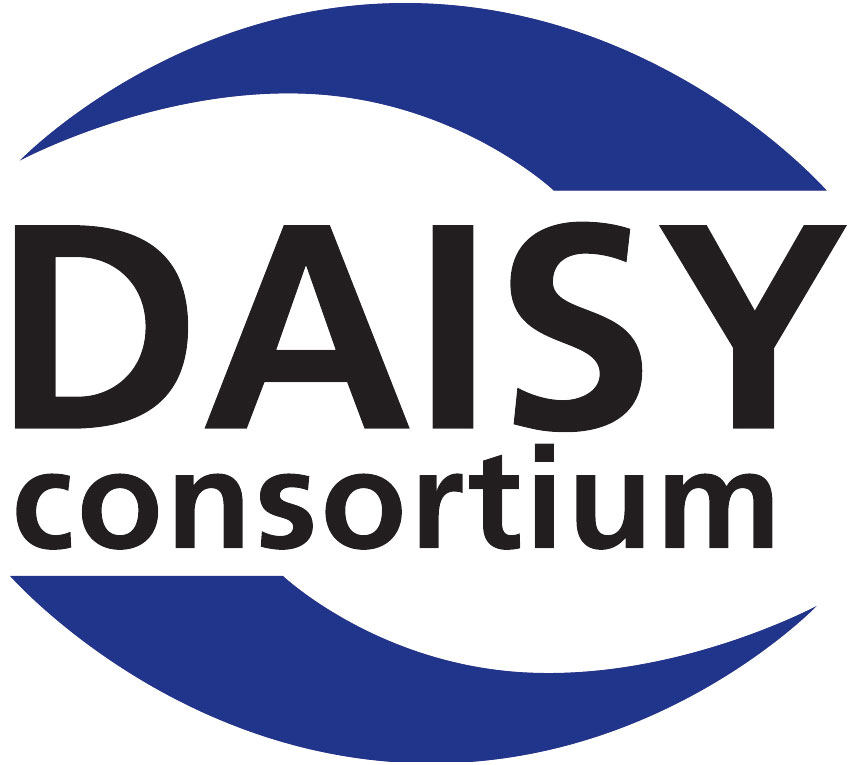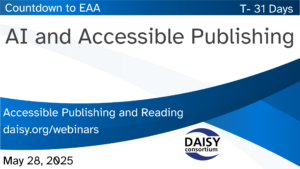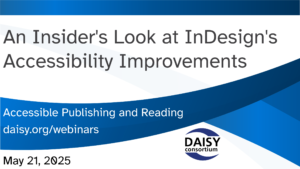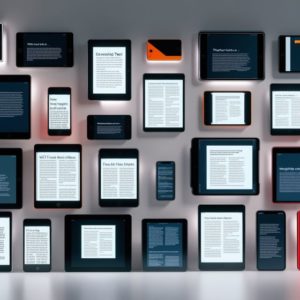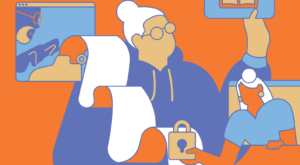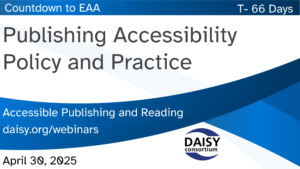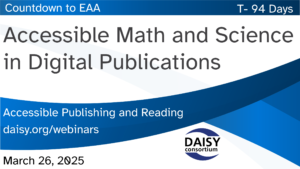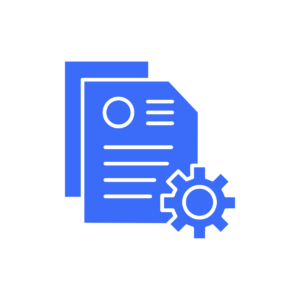In our series of free webinars June 25th saw a session that focused on celebrating and reflecting on all the good…
In our series of free webinars May 28th saw a session focused on AI and Accessible Publishing where our expert panel…
This week The DAISY Consortium was pleased to coordinate and host a special webinar focused on the accessibility improvements that…
Following on from our article An Introduction to AI Speech, we return to our series exploring the benefits and impact…
In December 2024, we officially kicked off the “Reading Apps User Requirements” project—an initiative designed to enhance the digital reading…
The number of born-accessible ebooks is growing fast, with increasing numbers available through retail channels and at public libraries. For…
In our series of free weekly webinars April 30th saw a session focused on Publishing Accessibility Policy and Practice concentrating on…
In our series of free weekly webinars March 26th saw a session focused on Accessible Math and Science in Digital Publications,…
Introduction There is a lot of discussion about AI at the moment, and the capabilities are developing rapidly. In the…
After more than two years of collaboration, research, and refinement, we are thrilled to announce the publication of the eBraille…
